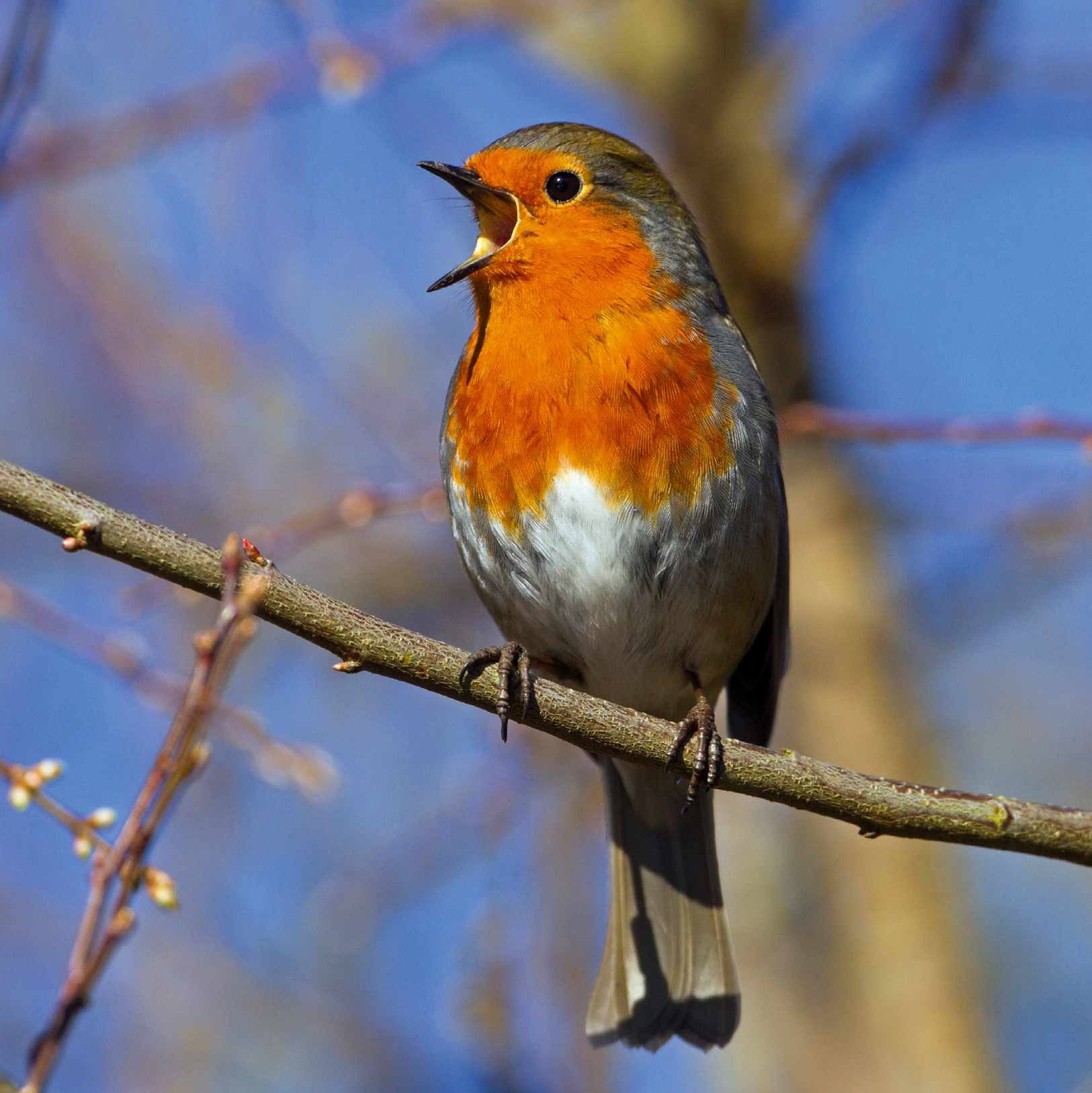New study finds country-dwelling robins get feistier in response to human-made noise pollution

THE ROBIN IS RECKONED TO BE BRITAIN’S most popular bird and is also one of the most familiar. Dig some earth and a resident robin might come close to see what food you’ve uncovered. Robin-to-robin interactions are often less amicable. Strongly territorial, a robin will sing, posture by puffing its red chest and – if necessary – fight to hold its ground.
Researchers from Anglia Ruskin University and Koç University in Turkey used a robin model and recordings of songs to measure aggression between territorial robins and intruders in rural and urban settings, reports Behavioral Ecology and Sociobiology. This showed that urban robins are typically more aggressive than rural ones.
Adding traffic sounds to the mix made urban robins reduce their call rate and didn’t affect their aggro, but rural robins became more quarrelsome.
The researchers suspect that urban robins have learned to dial down their threat displays during temporary increases in noise, whereas rural robins compensate with increased aggression. Lead author Çağla Önsal says, “Signals are extremely useful because they can deter an intruder without a fight that may be costly to both the territory owner and the intruder, but if the songs can’t be heard by the intruder the robins may have to resort to physical aggression.”

Lead author Çağla Önsal of Koç University, Turkey